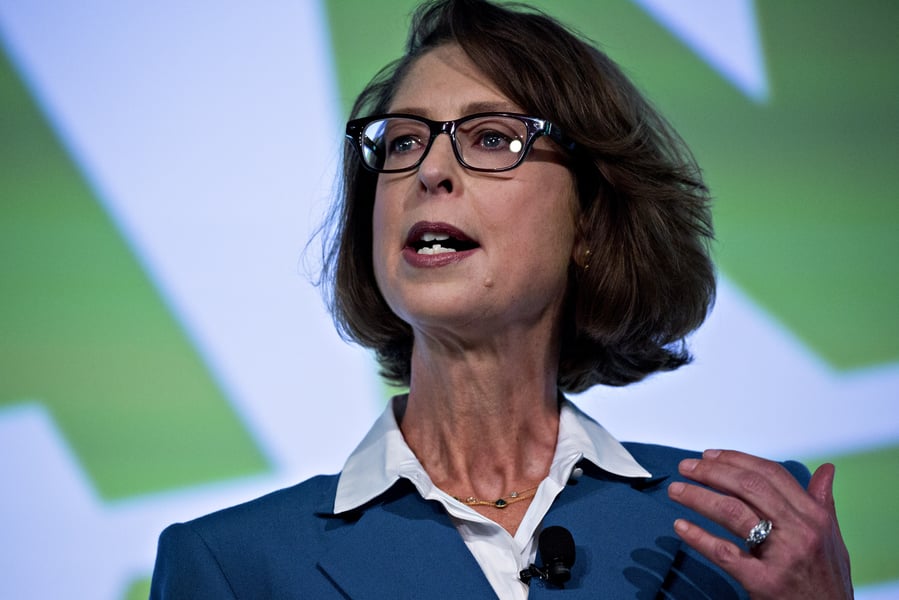About half of institutional investors consider digital assets to be worthy of holding in portfolios, according to a survey commissioned by
Fidelity Investments.
Fidelity, which began a custody service to hold bitcoin for its customers earlier this year, is trying to gauge how pensions, family offices, hedge funds, endowments and foundations feel about owning cryptocurrencies as it builds out its Fidelity Digital Assets business. According to the survey, which questioned 441 institutional investors from November to February, 72% prefer to buy investment products that hold digital assets, while 57% choose to buy them directly.
(
More:
ETrade to add cryptocurrencies to platform)
"That's interesting because I'd argue that no one owns dollars or euros in a fund," Tom Jessop, president of Fidelity Digital Assets, said in an interview. Survey participants said they were concerned about volatility, regulatory uncertainty and a lack of fundamentals to use in determining the right price for bitcoin, Ether and other digital assets. Mr. Jessop noted the survey was done during a bear market in which cryptocurrencies have dropped substantially from their highs in late 2017.
The cryptocurrency market continues to be plagued with fraud, theft and regulatory infractions. The latest case involves the New York attorney general accusing Bitfinex, one of the largest bitcoin exchanges, of hiding the loss of about $850 million in client and corporate cash. Vancouver-based Quadriga Fintech Solutions Corp., which is going through bankruptcy in Canada, owes 115,000 clients about $193 million in cryptocurrencies and cash after the death of founder Gerry Cotten last year. The continued black marks are likely keeping many traditional investors away from the space for now.

Fidelity Chief Executive Officer Abigail Johnson is hoping to change that, and has been a proponent of digital assets, setting her apart from many rivals. Under her leadership, the firm began mining bitcoin in 2015. She's betting Fidelity Digital Assets will appeal to Wall Street's relatively nascent appetite for trading and safeguarding digital currencies. Mr. Jessop echoed those thoughts in the interview.
"People are relying on the institutions they've done business with for a long time to fulfill their objectives and needs," he said. "I'm not trying to throw shade on anybody else, but it's up to the clients to decide."
(
More:
Fidelity to launch bitcoin custody service in March)
The survey found 47% of institutional investors said digital assets are worth investing in, with the same percentage saying they appreciate crypto for being innovative. The survey, which was done with Greenwich Associates, also found that 46% of respondents like the low correlation between cryptocurrencies and other asset classes.







